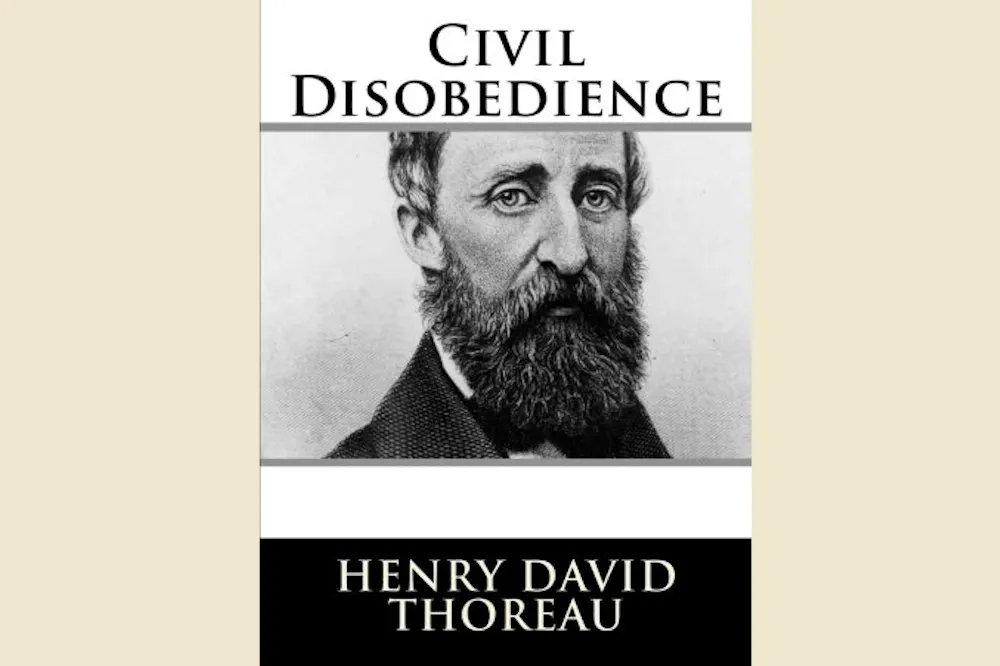Civil Disobedience
By Henry David Thoreau
Pub. 1849

Thoreau was locked in a jail cell for not paying toll tax. His reason was simple enough albeit a powerful one—he didn't want to submit to and offer his allegiance to a government that trades slaves and wages war. This jailing event influenced him to give a speech on his ideas of what a government should be, which later turned into the essay "Civil Disobedience". This essay came with Walden, his most notable work, and I was much taken aback by the sheer personal magnanimity and environmentalist sentiments Thoreau professed through that one. There were some hints in there of Thoreau's political inclinations. So I naturally wanted to read Civil Disobedience, which he wrote after he came back from Walden.
What is civil disobedience? It is an act of protesting against government laws or legislation for any sort of reason. As long as the protest is civil, that is to say, nonviolent, it can be considered civil disobedience. Thoreau thought the people shouldn't put their blind faith and devotion to the government, as it operates on a faulty mechanism. Democracy, while it is desirable over other forms of governments, it doesn't ensure righteousness or moral superiority. Thoreau encouraged individual morality and wisdom to be the judge of things that shouldn't be decided upon via majority votes. He thought the government shouldn't meddle in private lives, it's function is only to perform certain activities at a national stage that is essential to sustain a body.
"That government is best which governs least," so he says.
Now, it is important that he's not asking to revolt and stoking a revolution for the sake of it, he would abide by the laws of the land—if those laws and the govt. were just. They were not. He wished for a better government, one that ceases to trade slaves and make war. Not paying tax that benefits the government was the way he could revoke his support, as it is the direct way even the people who disagree with a govt. support the very governing body. He wasn't against paying community tax, such as building roads and so on that would directly benefit the society.
Thoreau's ideas in this essay are great and they are largely agreeable to anyone who's not active in an oppressor's role. The essay influenced many people over the last two centuries, Gandhi, Luther King for example, and of course the civil rights movement. But reading it now in 2021, some ideas feel outdated as the process of governments has changed over the centuries and the essay might give an impression of a collection of words any person with common sense and a working brain might sprout, but I doubt if that is the case.
Where I live, even the act of civil disobedience is severely punished. Thoreau was jailed 200 years ago, only for a day. I, on the other hand, may not see the face of the sun ever again. And I'm sure there are worse governments elsewhere on earth. Even the most "liberal" governments tend to suppress as much as they can, after all, all governments are crooked by design. So the essay still holds merit and the words reverberate with each iteration to remind us of non-conformation and they rightly should, for injustice prevails everywhere.
What to do then? He said,
it is "not too soon for honest men to rebel and revolutionize".
Wonder if living to tell the tale is in that equation!



